The researchers at the Florida Institute for Cybersecurity Research , or FICS Research, provide the highest level of expertise to government, industry and academia in all aspects of cybersecurity and assurance – including hardware, networks, mobile, Big Data, biometrics, Internet of Things (IOT), applied cryptography, nanoscale, social sciences and law.
Today, they are offering up these safety suggestions for Cyber Monday shoppers. Consider sharing them with your friends and family.
On December 1, at 4 p.m. EST, FICS Research will host their Distinguished Lecture Series with Donna Dodson, the Deputy Cyber Security Advisor at the National Institute of Standards & Technology (NIST). The talk will be available via live stream.

“Convenience often comes at a price. We’re helping to create industry standards for consumer electronics, but at present, many in-home devices aren’t made with your security in mind. They can be easily hacked to track your comings and goings and invade your privacy. Shop carefully! Not everything “smart” is safe.” – Mark Tehranipoor, Ph.D.
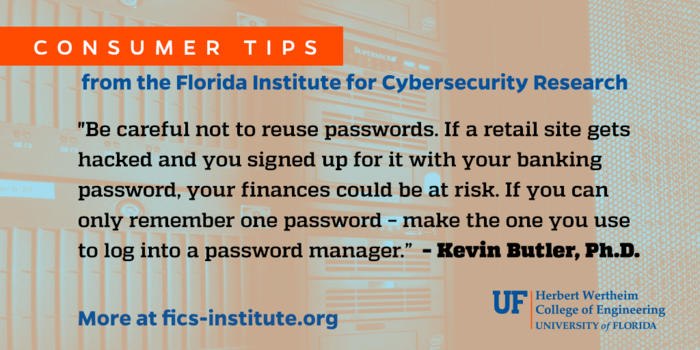
“Be careful not to reuse passwords. If a retail site gets hacked and you signed up for it with your banking password, your finances could be at risk. If you can only remember one password – make the one you use to log into a password manager.” – Kevin Butler, Ph.D.
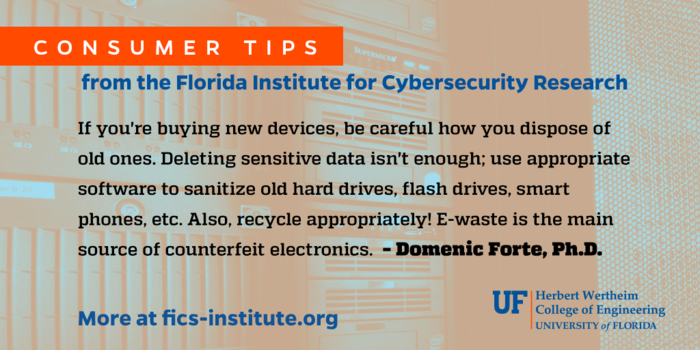
“If you’re buying new devices, be careful how you dispose of old ones. Deleting sensitive data isn’t enough; use appropriate software to sanitize old hard drives, flash drives, smart phones, etc. Also, recycle appropriately! E-waste is the main source of counterfeit electronics. – Domenic Forte, Ph.D.
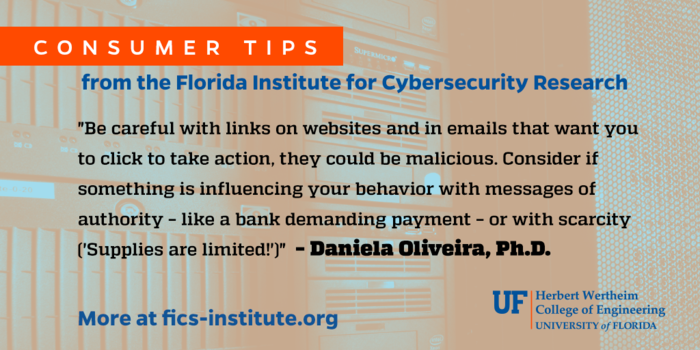
“Be careful with links on websites and in emails that want you to click to take action, they could be malicious. Consider if something is influencing your behavior with messages of authority – like a bank demanding payment – or with scarcity (‘Supplies are limited!’)” – Daniela Oliveira, Ph.D.
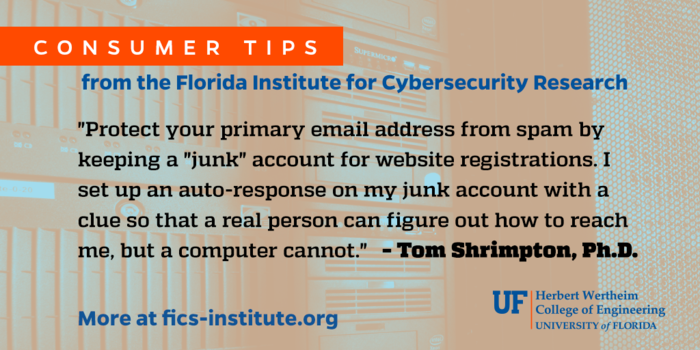
“Protect your primary email address from spam by keeping a “junk” account for website registrations. I set up an auto-response on my junk account with a clue so that a real person can figure how to reach me, but a computer cannot.” – Tom Shrimpton, Ph.D.
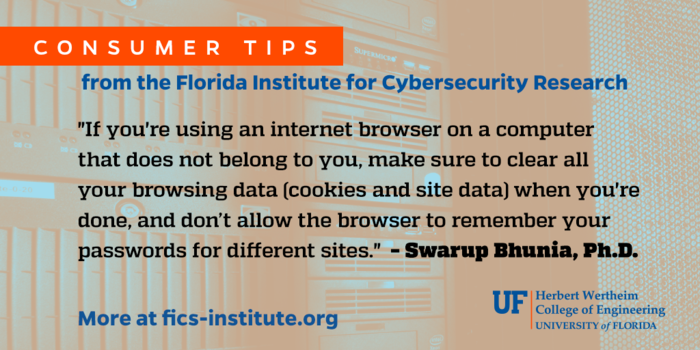
“If you’re using an internet browser on a computer that does not belong to you, make sure to clear all your browsing data (cookies and site data) when you’re done, and don’t allow the browser to remember your passwords for different sites.” – Swarup Bhunia, Ph.D.

“One thing I encourage my students to do is to segregate online activities. Use one browser for highly sensitive things – like banking and paying bills. Use another one for reading the news, general browsing and online purchasing.” – Patrick Traynor, Ph.D.